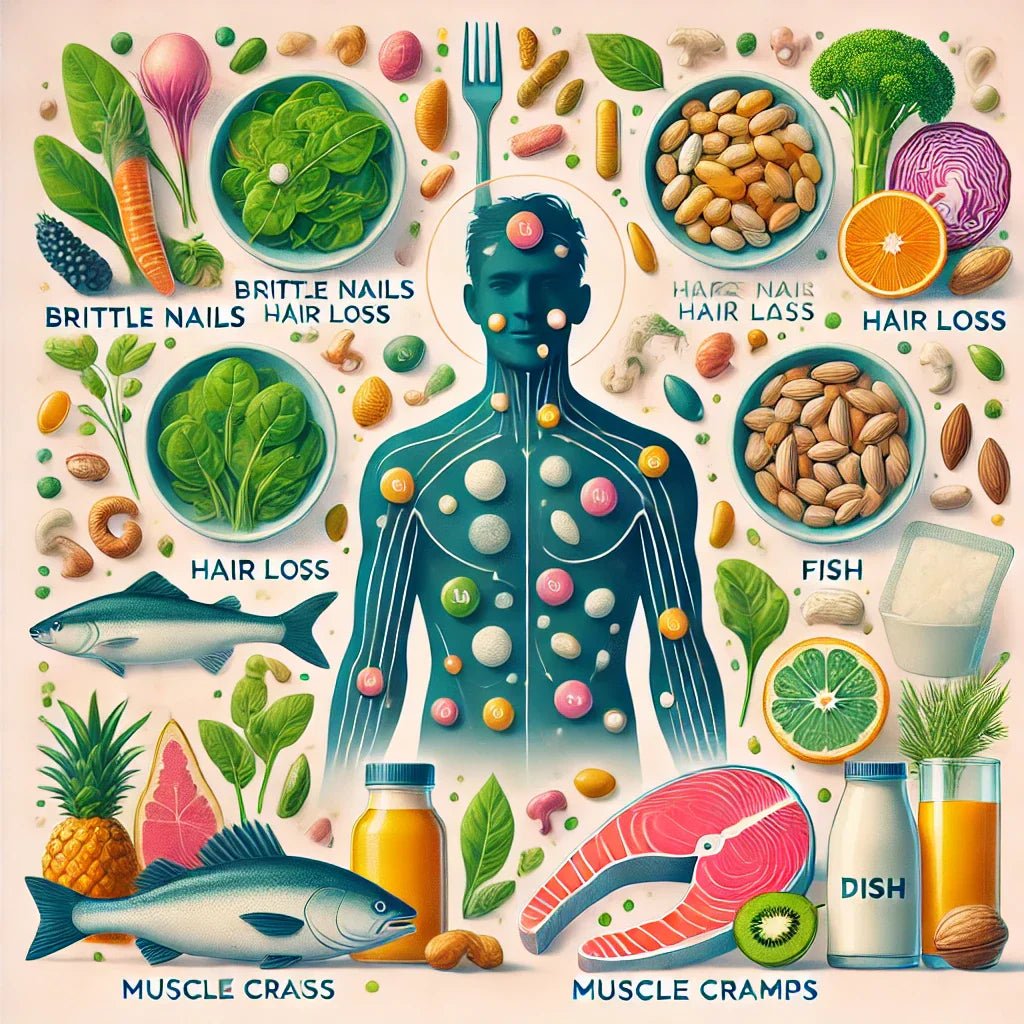Intermittent fasting (IF) is a nutritional method based on cyclical alternation of eating periods with periods of non-eating. The aim of this approach is not only to reduce body weight, but also to improve overall health, strengthen immunity and slow down the aging process. Intermittent fasting has a beneficial effect on the body by initiating regenerative processes, reducing inflammation, improving insulin sensitivity and optimizing metabolic processes.
The basis of intermittent fasting is to establish time windows in which meals are consumed and periods in which fasting is observed. During the eating windows, it is recommended to eat full meals, while during fasting - abstinence from food, while taking care of proper hydration of the body.
There are several popular intermittent fasting regimens, each of which can be tailored to your individual needs, lifestyle, and health goals:
- The 16/8 Method: One of the most popular forms of intermittent fasting, this involves fasting for 16 hours a day and eating within an 8-hour eating window. For example, you might eat between 12pm and 8pm, then not eat until 12pm the next day.
- The 5:2 Method: This method involves consuming a normal amount of calories for 5 days of the week, then restricting your calorie intake to 500-600 calories per day for the remaining 2 days. The fasting days do not have to be consecutive.
- Eat-Stop-Eat: This involves fasting completely (or eating very few calories) for 24 hours, once or twice a week. For example, a fast might last from lunch one day to lunch the next day.
- Alternate Day Fasting (ADF): As the name suggests, this involves alternating fasting on alternate days. On fasting days, you eat very few or no calories, while on non-fasting days, you eat normally.
- **Warrior Diet**: This involves eating small amounts of raw fruits and vegetables throughout the day, then one large meal in the evening. The eating window is usually about 4 hours.
Intermittent fasting has many health benefits, including:
- Loss of weight and body fat.
- Improving insulin sensitivity, which may help prevent type 2 diabetes.
- Improving the lipid profile, which reduces the risk of cardiovascular disease.
- Increased metabolic efficiency.
- Possible benefits in improving brain function and slowing the aging process.
Determining which type of intermittent fasting is healthiest and easiest to implement depends on many individual factors, including lifestyle, health goals, as well as dietary preferences and personal adaptability. However, two methods are often highlighted as particularly accessible and easy to integrate into your daily routine:
The 16/8 method, also known as daily fasting, is widely considered one of the easiest forms of intermittent fasting to implement. For many people, this model is relatively easy to adapt to because it fits naturally into the circadian cycle, and most of the fasting period occurs during sleep.
The 5:2 method is another method that is considered to be a relatively easy form of intermittent fasting to implement. This flexibility allows for easy inclusion of fasting days in your weekly schedule without drastically changing your eating habits. The 5:2 method may be particularly appealing to those who find it difficult to follow more restrictive forms of fasting on a daily basis.
When it comes to which type of fasting is healthiest, the answer is not clear-cut, as health is a multifaceted issue that depends on individual needs and responses. Many studies suggest health benefits for all of these methods, including improved insulin sensitivity, weight loss, reduced inflammation, and potential benefits for brain health. So, choosing the healthiest method will depend on your individual health goals, how your body responds to fasting, and how easily the method can be integrated into your daily habits and eating preferences.
Mistakes that can sabotage your efforts and even harm your health, and how to avoid them.
- Making changes too quickly.
The biggest and most common mistake with intermittent fasting is introducing the practice too abruptly. It’s natural to want to see results quickly, but your body needs time to adjust to a new eating pattern. Intermittent fasting isn’t a race. Gradually increasing your fasting periods gives your body the opportunity to adapt, minimizing negative effects like metabolic stress or blood sugar imbalance. By starting with lighter forms, like skipping one meal or limiting your eating window to 12 hours, you can gradually accustom your body to longer periods without food.
- Ignoring body signals.
The human body is exceptionally good at communicating its needs, but in the hustle and bustle of everyday life, these signals can be easy to ignore. Hunger, fatigue, irritability, and other worrying symptoms can be signs that intermittent fasting isn’t properly tailored to our body’s needs. It’s important to not only listen to, but also understand, the signals our body is sending us. Adjusting the length of your eating and fasting windows to your body’s individual responses can be key to avoiding negative health effects and maximizing the benefits of fasting.
- Inadequate nutrition.
During your eating windows, it is crucial to provide your body with all the nutrients it needs. Ignoring this aspect and eating foods with low nutritional value will not only sabotage your fasting efforts, but can also lead to nutritional deficiencies. A diet rich in valuable nutrients, protein, and healthy fats is essential for maintaining health and effectiveness of intermittent fasting. It cannot be emphasized enough how important it is to eat a balanced diet.
- Neglecting hydration.
Water is life – this statement takes on special meaning during intermittent fasting. Hydration plays a key role in maintaining vital functions and can help alleviate hunger. During periods of fasting, it is recommended to drink water with electrolytes and minerals, herbal teas without sugar, and other non-caloric beverages. Neglecting proper hydration can lead to dehydration, which negatively affects overall well-being, performance, and the body's ability to use energy resources efficiently.
- Excessive focus on numbers.
Obsessing over weight and calories can obscure the true goals of intermittent fasting, such as improving metabolic health, improving well-being, or increasing longevity. It’s important to remember that intermittent fasting is a tool for improving overall health, not just a quick weight loss method. Focusing on long-term health benefits, rather than just weight changes, allows for a more holistic approach to the practice.
- Skipping physical activity.
Physical activity is an essential part of a healthy lifestyle and should be an integral part of your intermittent fasting routine. Exercise not only supports your metabolic processes, but can also make your fast more effective. It is important to find a form of activity that you enjoy and that does not put additional strain on your body, especially during periods of fasting.
- Lack of flexibility.
Rigid adherence to rules can be a barrier to long-term success. Life is unpredictable, and rigidity in your approach to intermittent fasting can lead to frustration and eventual abandonment. Flexibility in adapting your fasting to your own needs and life circumstances is key to maintaining health and well-being. This allows you to develop a personalized regimen that is not only effective, but also sustainable and realistic to maintain over the long term.
Summary:
Intermittent fasting offers many benefits, but to fully reap the benefits, it’s important to avoid these mistakes. Making changes wisely, listening to your body’s signals, eating well, staying hydrated, taking a healthy approach to the numbers, staying active, and being flexible in your approach are key to success. Remember, everyone is different, and the best approach to intermittent fasting may require individual adjustments. It’s always a good idea to discuss dietary and lifestyle changes with a health professional to make sure they’re safe and appropriate for your health condition and goals.
AUTHOR: Ice Tiger Health Coach Sebastian Zachara
Clinical dietitian, business psychologist, WHM, XPT and Oxygen Advantage respiratory trainer. Entrepreneur, athlete, personality that combines passion for a healthy lifestyle. He has extensive experience in the world of health and sports. Former competitive athlete, representative of Poland, winner of many Polish champion titles, European Championships and World Cups. In the 2021/22 season, he was the mental and respiratory trainer of the Polish Women's Olympic Team in kayaking. Husband and father of three children. Entrepreneur operating on the German, Spanish and Polish markets. He is the author of 2 books. Creator of the innovative "Ice Tiger Training" program, in which he uses his knowledge to help people fight stress, develop new positive habits, increase productivity and improve health. Specialist in the field of reversing metabolic and autoimmune diseases through lifestyle and nutrition changes. Organizer of workshops and camps related to the broadly understood topic of health and Post Camp - Cleansing and Harmony.






